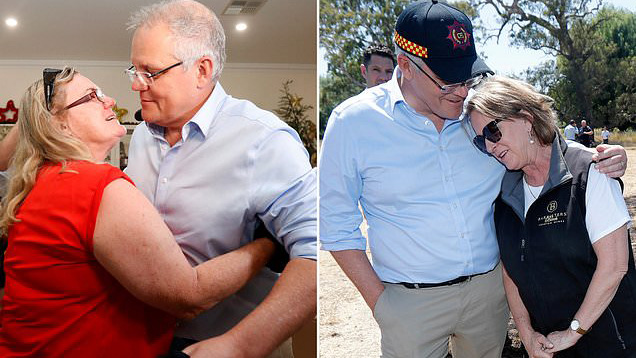For such a normally astute politician, Australian prime minister, Scott Morrison, was shockingly wrong-footed by Australia’s bushfire crisis and the political and media hysteria that followed. Slowly, the government is moving to recover from the political firestorm.
While presumably judging – correctly, as it happens – that the federal government’s role in such emergencies is all-but-nonexistent, Morrison’s decision to take a family holiday was still inexplicably ham-fisted. He must have known that organisational realities be damned, the media-elite would pounce like hyenas. Feelings and empty gestures are the currency of today’s media. Doing takes a long second to being seen – especially being seen doling out hugs for the cameras as if they were emergency supplies.
But, in the process of struggling to regain political control, Morrison has risked alienating the very voters who delivered the Coalition such a stunning electoral victory. Inasmuch as elections are ever about specific issues, the Australian electorate emphatically rejected the sort of ‘climate action’ that the Greens and the globalists are demanding. So, when Morrison and his ministers seemed to be surrendering to the ‘it wuz climate change!’ narrative, many Coalition voters began to wonder if they were returning to the bad, old days of Malcolm Turnbull, the wannabe-Green masquerading as a Liberal.
Such fears may yet prove to be unfounded. Morrison has summarily slapped into line one Coalition state backbencher who tried to link the bushfires to the government’s climate policies. He’s also putting pressure back on the states who are responsible for the parks which exploded into firestorms this summer.
Scott Morrison has called for a national standard for bushfire hazard-reduction burns and declared that tracking measures to cut fuel loads is at least as important as monitoring Australia’s carbon emissions.
In fact, Morrison is taking the rhetorical fight right up to the Klimate Kult, illustrating how climate alarmism is not just foolish, but dangerously ignores real problems.
In the wake of the bushfires crisis, the Prime Minister criticised the fact there were clear rules and transparency arrangements for reporting on emissions but not on mitigation measures.
He highlighted hazard-reduction burns, land-clearing laws and management of native vegetation and national parks as critical state issues that had to be scrutinised.
“We report all the time on what our emissions reductions are but across the country there is not a national system of reporting to track how hazard reduction is progressing,” Mr Morrison said on Tuesday night.
Morrison also takes a swipe at negligent Labor state governments.
“These are all responsibilities of the states and I’m not making any argument for the federal government to be intervening in any of these areas but it is a very reasonable expectation people have that there are national standards, that there is transparency around how this is being achieved.
“Hazard reduction is as important as emissions reduction and many would argue, I think, even more so because it has an even more direct practical impact on the safety of a person going into a bushfire season.”
This is a direct hit at the states, especially the Andrews socialist government, which have comprehensively failed to meet their hazard-reduction obligations. If there are any ‘arsonists’ in Australian politics, it’s governments who pandered to the Green-left and allowed staggering amounts of fuels to build up for years.
Morrison is also opening a front on what so many keyboard experts have completely failed to comprehend: that Australia’s federal system prevents Canberra from acting in areas that are supposed to be state responsibilities. When the Morrison government finally got sick of waiting for the states to step up and summarily sent in Army Reservists, he was on shaky constitutional grounds: grounds he’s obviously trying to secure.
Mr Morrison wants any royal commission to look at the legality of the federal government calling out the Australian Defence Force to respond to a natural disaster.
Three thousand reservists were called out in January on a compulsory basis to help in the bushfire recovery.
“I want to know when the trigger line is. I want to know where the authority is established for the prime minister, for the federal government, to be able to take the initiative and move in and direct getting these resources in place where we believe life and property is under threat and we believe we can play a constructive role,” Mr Morrison said.
If you enjoyed this BFD article please consider sharing it with your friends.

